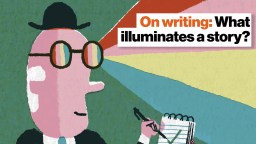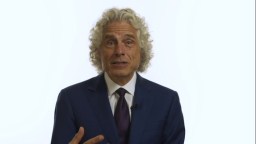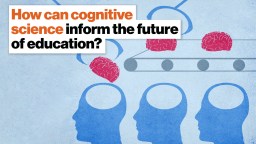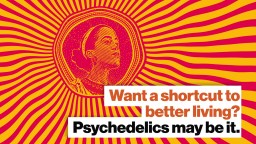neuroscience
Don’t be afraid to have the very experiences you aspire to write about — they will help you write more vividly, and from a genuine place of wonder.
▸
9 min
—
with
Psychologists discover why people participate in scary attractions.
After a comprehensive study, researchers came to a startling conclusion.
To prevent torturous experiments on organoids, some are calling for clearer definitions of consciousness.
In Talking to Strangers, Malcolm Gladwell discusses the concept of coupling.
As the American loneliness epidemic reaches alarming new heights, one artist theorizes on what connection might look like in the future.
Sleep deprivation leads to a shutdown in the production of essential proteins.
The processes behind our ability to make decisions are complex, but they’re not miracles.
▸
3 min
—
with
Conventional wisdom believes “screen time” disrupts mental development, but research hints at a more complicated relationship between our minds and digital technology.
Lengthening daylight isn’t necessarily good news where mental health is concerned.
Is the way we hear music biological or cultural?
Most of us can’t imagine wanting absolute control over a nation or feeling compelled to commit mass murders — so then what is it about a dictator’s psychology that makes them different?
The science of learning is decades ahead of the education system. How can we bring education into the present?
▸
7 min
—
with
Most elderly individuals’ brains degrade over time, but some match — or even outperform — younger individuals on cognitive tests.
The system could help with diagnosing and treating patients that cannot communicate.
Researchers are only just beginning to really understand anaesthesia awareness.
An expert’s take on how to ace your exams through mindfulness.
This unsettling new understanding of vegetative patients raises medical ethics issues.
Mirror neurons bounce smiles from one person to the next.
A steady timing reference is required by one of the leading theories of neuronal communication.
Maura O’Connor discusses her new book, Wayfinding: The Science and Mystery of How Humans Navigate the World.
Someday we’ll beam to the moon for afternoon tea, and be back in New York for dinner.
▸
5 min
—
with
Autism is a widely misunderstood condition surrounded by falsehoods, half-truths, and cultural assumptions.
These prior beliefs help us make sense of what we are perceiving in the present.
“A monkey has been able to control a computer with its brain,” Musk said, referring to tests of the device.
The Harvard Medical School’s clinical professor of psychiatry wrote the book on the topic.
LSD may help us change our lives by spurring perspective shifts.
▸
5 min
—
with
Here’s what neuroscience and psychology have to say about how people humanize and dehumanize one another.
▸
4 min
—
with
Brain plasticity. Mindful superpowers. Pokémon invading our grey matter. Scientists have only begun to learn about the human brain.
There are a few different theories out there, but the parieto-frontal integration theory, or P-FIT, appears to give us the best model of the neuroscience of intelligence.





























